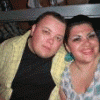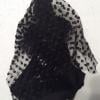Search the Community
Showing results for '"weight gain"'.
Found 15,850 results
-
Congrats on the 50 lb loss!!!! That's why you're here isn't it? Support! The only thing my mother-in-law ever seems to notice is weight gain not loss so there must be two really good ones out there, brandyII.
-


How did you decide the sleeve was for you and any regrets?
Healthy_life2 replied to Panda333's topic in Gastric Sleeve Surgery Forums
@Panda333 I’m a sleeve five years out maintaining in the 130’s. I am type one diabetic. My surgeon suggested the sleeve because there are times, I need to eat sugar to raise my blood sugars. WIth the sleeve, my intestines are not altered, I don’t have dumping syndrome with sugar. I am now well controlled and hardly use insulin. I want people that are researching weight loss surgery to know, many of us have had no complications and have maintained years out. Weight gain or need for a revision does not happen to all of us. Do your research, trust your surgeon’s advice do what’s best for you. Any type of bariatric surgery may need a revision due to complications, surgery not performed correctly, eating to the point of stretching your surgery (big debate on this issue) Grazing/eating around your surgery, eating disorders, or simply not following your surgeons plan. Only my opinion: For some, the sleeve is the wrong choice for them. Things I wish people knew about the sleeve. Your sleeve restriction will become less over time. you can hold more food. (it’s not back to full size) Long term success will be diet and behavior change. Just because you have more space does not mean you have to eat over your calories and macros to gain weight. If your surgeon has diagnosed that you stretched your surgery. Get counseling before a revision to make sure you don’t stretch a second surgery. Your intestines are not altered with the sleeve. Most of us can tolerate sugar without dumping. If sugar is an issue for you, investigate surgeries that give you dumping syndrome. You will feel real and head hunger at times (true with any surgery type) Hunger is more manageable after surgery. age 45 day of surgery 2014 - age 50 2019 -
This shot made me completely insane, was on it years ago for 2-3 year period. No one has commented on weight gain with it, so I must!! I gained 50-60lbs on this stuff...it is nasty and unlike pills, u are stuck with if for 3 months even if you want off of it.....to each his own, finally had tubal ligation after last son was born. Not to scare anyone, just check it out thoroughtly before trying.
-
I take Effexor and I haven't noticed any weight gain from it. Prozac made me a space cadet...I went one whole day wearing my wedding ring on the wrong hand and didn't realize it until night time.
-
I had the weight gain problem with Prozac as well and really ballooned on abilify. Three different docs told me that the only antidepressant that doesn't cause weight gain (and in some people is known to cause weight loss) is Wellbutrin. It is not an SSRI. I am now taking Wellbutrin and actually lost weight on it until one brilliant doc added abilify. Then I ballooned again. I am now on Wellbutrin and a small dose of lexapro. I have not seen any additional weight gain.
-
I'm in the same boat as Misha. I'm pursuing it for other reasons, but have my fingers crossed that it will also help my PCOS and its ugly symptoms. I think at most we can place hope in the potential of WLS to aid with PCOS+symptoms, but I'm personally too pragmatic to get my hopes up for 100% resolution for 100% of all PCOS symptoms/side effects alone From my understanding and time spent googling studies and such, the odds are in our favor to see a lot of the irregularities and problems brought about by PCOS disappear (i.e. regularity, fertility, hormonal re-balancing or w/e...), but nothing indicates that PCOS+symptoms are resolved 100% of the time. I think stats I found were roughly around 70-85% resolution following WLS (note: none of the studies I found seemed to be conducted on more than 1-2 dozen subjects w/observations generally spanning 2-2.5 years). It may be worth noting that none of the studies I came across gave any detail regarding whether or not patients developed PCOS following weight gain or had symptoms prior to obesity... I think this information would be valuable to know -- since you don't necessarily have to be overweight to develop PCOS in the first place... **This is where I try to keep my hope for 100% symptom resolution, lol. Like "Maybe the 15-30% that didn't see improvements in their PCOS were just genetically predisposed to it in the first place"? If anything - I'd like to think: "since my PCOS developed in correlation with inches on my waist line and lbs on the scale" and as my androgen levels and other fun hormonal things went out of balance, that tilting the scale back in the opposite direction should logically reverse some of these effects. I think it's good to hope and to know that if concerns are for fertility/regularity -- that things are in our favor. However, one grey area that remains for me is with the smaller stuff such as break-outs and even worse - the unwanted hair growth I believe that acne problems should subside as my body changes and as I improve my health. I can actually place more blind faith in this. However, I have known 2 people who have had bypass 2+ years ago and know that while fertility and stuff did improve, they still have problems with unwanted hair growth... If anyone has seen resolution of this symptom as well following weight loss or WLS, I'd really like to know!? At present, I've retained a shred of hope that the hair growth will slow/disappear based solely on me preferring to think that maybe these two women were just genetically prone to growing fur or bristles... Another part of me thinks that while the hair growth may have been encouraged by PCOS, that getting my hormones and stuff back in check isn't necessarily going to tell those already established hair follicles or w/e to go away. For this reason, I'm probably best off planning to pay for laser hair removal on these areas after PCOS (hopefully) is resolved D: Note: I'm only pre-op though and know we would all love to see a collection of responses from post-op patients that had great success from hair to fertility
-


Please help me with protiens!!!
DBAGuy replied to Bamalama's topic in PRE-Operation Weight Loss Surgery Q&A
Well... My understanding is that many of the products (like at GNC) that advertise they're for weight gain have lots of stuff other than Protein in them...like carbs, etc. I wouldn't use those. But some pure protein products are sold for weight gain, since they help to add muscle. The only real way I can think of to tell is to look at the nutrition label...how many calories/scoop or serving? Should be very little if it is just protein. What kind of ingredients are listed? For instance...Unjury powder is 90 calories per scoop, with 0 grams of fat, 3g total carbs, 20g of protein. Pro Gainer weigh gain supplement protein powder has 645 calories/serving, 7g of fat, 110g of carbs... -


Please help me with protiens!!!
SHESHEGIRL replied to Bamalama's topic in PRE-Operation Weight Loss Surgery Q&A
well which proteins shakes are for what?? i was getting the gnc protein powders and was just told they are for gaining weight. i have been using since i got banded! is there a difference of weight gaining and whatever other ones are out there? i'm getting confused here:confused: -
Gastric Band- advice for week 5 onwards Weight loss You may lose some weight in the first 2 weeks post-surgery, but this is more due to the low calorie liquid diet and the fact that sometimes, appetite is reduced due to the area around the band swelling initially after surgery. Your weight is therefore likely to plateau or even go up slightly by 4 weeks post-surgery. By the time week 5 comes around, it is highly likely that you will be feeling hungry again; this is because the swelling will have most likely subsided, therefore the top of the stomach is no longer being compressed by the band to the same degree. The process of gastric band adjustments is required in order to ensure adequate compression of the stomach and hence adequate appetite reduction, reduced portion sizes and weight loss. However, the band needs very fine-tuning to provide optimal reduction in appetite and satisfaction on small portions (sometimes described as ‘restriction’), and you should expect to need 4-6 adjustments to the band in the first 6 months post-surgery before this is achieved, although everyone is different and a small minority of people can even feel the effects of the band with only 1 or 0 adjustments. Band adjustments One of the best features of the Gastric Band is its ability to be adjusted to ensure of a sensible and successful weight loss. The members of the multi disciplinary team will assess your need for the band to be adjusted during your follow up consultations. We do not perform adjustments unless they are genuinely needed. We will always carefully review your status before deciding on a ‘fill’ because the aim of the band is to reduce capacity, not completely restrict you. Problems related to the band are often associated with it being ‘over filled’. What is a gastric band adjustment? An adjustment is the process whereby Fluid is added to the silicone band, which then tightens the band itself and makes the stoma (opening) between the upper and lower parts of the stomach smaller. This results in food flowing through the stomach more slowly and therefore the band squeezes on the vagus nerve at the top of the stomach to a greater degree, thereby meaning you feel satisfied on less food. Fluid can also be withdrawn from the band at an adjustment – this may be needed if weight loss needs to slow down or if it is suspected that the band may be too tight. Everyone is individual and usually patients require several adjustments to gain and maintain optimum restriction. The members of the multi disciplinary team are trained to assess whether or not you require a band adjustment. You are likely to require a band tightening or ‘fill’ if one of the following is the case, usually in combination with lack of weight loss: 1) You are hungry sooner than 4-5 hours after meals. 2) You are able to comfortably consume a large quantity of textured food within a 20 minute period. You are likely to require a band loosening or ‘aspiration’ if one or more of the following is the case: 1) Symptoms of discomfort/pain on eating, regurgitation, night cough, acid reflux/heartburn (especially at night) 2) Difficulty tolerating solid foods despite appropriate eating behaviours, and reliance on soft/high calorie foods that are easy to eat, resulting in sub-optimal weight loss or even weight gain. If either of the above is the case, you MUST contact your local clinic without delay to arrange an appointment. A competent practitioner will add the amount that he/she feels is clinically required based on your weight changes, your appetite after eating and the volume of food that you can manage. There must be a minimum of 3 weeks between band fills in order to allow you to adjust to the altered level of restriction, and for the Dietitian to review your progress. What is involved? You will most likely be asked to lie on the couch, however sometimes it is easier to access the port whilst standing. The practitioner will ask you to expose the area where your port is sited. You may be asked to raise your legs or raise your head because this pushes the port closer to the surface, which can make it easier for the practitioner to feel it. The practitioner will wash their hands and then clean the port area with an antiseptic wipe. A needle will be used to puncture the skin and gain access to the port area and fluid will be added or removed using a syringe attached to the needle. You will be asked to drink some Water whilst the needle is in situ so that the practitioner can ensure there is adequate restriction or the band has been adjusted appropriately. Some patients may experience “burping” after the procedure. Will I be able to eat afterwards? It is essential you progress gradually with your diet during the initial 3 days after an adjustment. Phase 1: fluids for the first 24 hours • This minimises the risk of any complications associated with tightening the band. • The practitioner who performed your adjustment may advise you to extend this phase to 48 or 72 hours, especially if they checked how much fluid was in the band initially before replacing it and adding more fluid, as this can cause additional swelling to simply adding fluid. You will usually only require this ‘fluid check’ at your first adjustment to provide a baseline level. • Fluids are defined as anything liquid that can pass through a straw. • Fizzy drinks are not allowed during this period. • You should aim for about 2-3 litres of fluid per day, or enough to ensure your urine is pale straw-coloured from around 4 hours after waking onwards. • Follow the same regime as you did during the first 2 weeks after your operation. Phase 2: soft/pureed food for the next 24 hours • Follow the same regime as you did during the second 2 weeks after your operation. You should then start to notice a reduction in appetite and reduction in the quantity of food required to stop you feeling hungry when you first start to eat normal/textured foods again, although it should be stressed that an exact degree of appetite reduction and reduction in portion size can never be guaranteed following an adjustment, and if you are in the early stages of your weight loss journey, it’s important to remember that several adjustments are usually required to gain and maintain optimal restriction. Continue to take your Multivitamin and mineral supplement. The supplement and any medication will need to be crushed, soluble or chewable during the initial 2 days after a band adjustment. Are there any complications? There can be complications, which is why we ask that you do not eat normally for 3 days. There have been reports of band slippage or gastric erosion associated with over-tightening and hence we take the process of performing band adjustments very seriously and only arrange them when clinically indicated. If you do require fluid removal or a review of the band, you MUST contact your local clinic without delay to arrange an appointment. We do not advise that you fly within 2 weeks of having your band tightened - this will ensure you have enough time to check the band is not too tight and to give you time to arrange an aspiration if necessary. Furthermore, the change in air pressure may affect the tightness of the band, and so it is recommended that you do not have fluid put back into the band for at least one week after flying in case the band has tightened up during the flight. Increased stress/anxiety can sometimes make the band feel tighter than usual, and the nurse will not be able to tighten the band in this instance. Hot weather can also cause the band to feel tighter than usual – with this in mind, we do not recommend you travel to a hot climate within 2 weeks of having the band tightened. Some women find that the band feels tighter during menstruation, hence it may not be appropriate to tighten the band at this time of the month. What are the risks of this procedure? Immediate • Slight discomfort/pain. • Bruising • Punctured port tubing. • Inability to access the port – in this instance, you will be referred to an alternative practitioner in the first instance. If the second practitioner is unable to access the port, we may consider referral for an x-ray guided band adjustment; charges may apply. Soon after • Bruising. • Heartburn and/or reflux. • Infection. • Over-restriction, characterised by sickness/vomiting, inability to swallow fluids, nocturnal acid reflux & pain Over 48 hours • Infection. • Over-restriction – as above. • The band may become “unclipped” – this can usually be rectified by a surgical procedure. • Port may become detached – this can usually be rectified by a surgical procedure. • The following (commonly caused by an over-restricted band): o Erosion. o Slippage. o Oesophageal dilatation. o Pouch dilatation. o Achalasia/oesophageal dysmotility – these are pre-existing conditions, the symptoms of which the band can exacerbate. How can I tell if my band is too tight/I am over-restricted? There are a number of signs or symptoms that might indicate your band is too tight. They would usually become apparent within 24-48 hours of a band adjustment. They include: • You cannot swallow your own saliva • You cannot drink sufficient fluids (leading to a risk of dehydration) • You are unable to eat solid food • You are experiencing frequent heartburn, belching and regurgitation • You are having reflux more than one night a week (when food or fluid comes into your mouth or nose when you lie down) • You are experiencing difficulty swallowing even well-chewed food In any of these cases, you MUST contact your local clinic without delay to speak with a nurse or dietitian as you may need to have some fluid withdrawn from your band. Do NOT struggle with an over-restricted band – doing so puts you at unnecessary risk of complications. Call your clinic within 48 hours if symptoms of over-restriction become apparent following a band fill. Choosing the correct texture From 4 weeks post-surgery onwards, it is essential that you progress onto a diet of solid/textured foods. Solid food requires thorough chewing, meaning that not only are you less likely to rush your food, but you are more likely to feel satisfied and enjoy your meals. In addition, firm/crunchy foods tend to be more nutritious and lower in calories and fat than softer foods. Opt for wholemeal/wholegrain products where possible, as these are higher in fibre and other nutrients. Most importantly however, the number of times the oesophagus has to contract to get solid foods through the band is greater than with soft foods, so you will experience a reduction in appetite far sooner, hence eat less. However, it is important to remember that appetite and portion size reduction is unlikely to occur to any great degree until the band is adjusted appropriately. Things to be wary of: 1. Dishes where lots of sauce is used as this will make the dish less suitable and more likely to slip through the band too quickly, so you can eat more and not stay satisfied for long. Good examples would be sauce on Pasta and gravy on a roast dinner. You can overcome this by reducing the amount of sauce used and adding chunky vegetables, Beans and/or lentils to the sauce to improve its texture. 2. Soft ‘complete meals’ e.g. fish pie, shepherd’s pie, lasagne. Ideally avoid these meals, but if and when you do choose them, they should only fill ½ of the plate; fill the rest of the plate with crunchy steamed vegetables or salad. Use the list below to help guide you to choosing the correct texture. Avoid – too soft Rice Krispies, Frosties, Weetabix, Porridge, Readybrek Mashed potato Stewed fruit / fruit smoothies Liquidised Soups Curries with lots of sauce Drier consistency Overcooked/soft vegetables, Mushy peas Overcooked/soft pasta Better choice All Bran, Branflakes, Fruit & Fibre, No added sugar muesli, Minibix, Special K –ensure only a splash of milk is used to ensure they remain crunchy when eaten. New potatoes (with skin), jacket potato (with skin), oven-baked potato wedges (with skin; use spray oil) Whole fruit (with skin) Stew/casserole – with chunks of crunchy vegetables & potatoes with the skin on curries e.g. tandoori, served with crunchy vegetables/salad Crunchy steamed vegetables Wholemeal pasta cooked so it retains some ‘bite’ (al dente) Caution foods There are some caution foods, which are more likely to cause discomfort and/or regurgitation when eaten, particularly if introduced into your diet too early. Always take care when introducing foods back into your diet and take note of any discomfort. It is important to experiment with these foods to identify how your body will react. If a food causes problems, remove it from you diet and then re-trial it again after a few weeks. The caution foods listed below should be the last attempted when progressing onto solid foods – try other foods first. They should also be avoided for two weeks after each band fill, to give you time to attempt other foods first. The main caution foods are: 1. Bread & bread products Try none of these foods until week 5 post-op and follow the below staged approach when introducing these foods: • Try 1st: low fat crackers (e.g. Ryvita, Crackerbread, Finncrisp, Krisprolls) • Try 2nd: well toasted wholemeal pitta bread • Try 3rd: wholemeal wrap • Try 4th: Weight Watchers/Nimble bread, toasted to begin with • Try last: normal wholemeal/granary bread, toasted to begin with • Try to avoid: soft doughy white bread 2. Boiled or steamed rice Do not try until week 5 post-op and ensure you have tried other types of carbohydrate first e.g. potatoes with the skin on, pasta cooked so it retains some ‘bite’ (al dente), couscous, noodles. • Brown rice is better. • Ensure you wash it thoroughly before and after cooking to prevent it becoming “sticky”. 3. meat, particularly chicken breast, steak and pork chops You may have already tried lean (ideally less than 5% fat) minced beef/pork/lamb/chicken/turkey in the soft food stage post-operatively. If not, try this first before attempting anything more solid. Once you have started eating textured foods from week 5 onwards, start building in other meat products by following the below staged approach: • Try 1st: Lean (ideally less than 5% fat) minced beef/pork/lamb/chicken/turkey (N.B. as mince has a tendency to be soft and ‘easy to eat’ when cooked, aim to include chunky vegetables, beans and/or lentils when making meals from these foods) • Try 2nd: Stewing steak/casseroled/slow cooked meats • Try 3rd: “Wafer thin” sliced sandwich meats (ideally less than 5% fat) • Try 4th: Chicken or turkey leg meat (no skin) • Try 5th: Lean sausages (ideally less than 5% fat) • Try 6th: Lean bacon or turkey bacon (fat cut off) • Try 7th: Grilled/dry fried/barbequed chicken or turkey breast (no skin) • Try last: Grilled/dry fried/barbequed beef/pork/lamb Other caution foods • Stringy vegetables/fruit such as green beans, sweetcorn and pineapple. • Fruit with tough skin e.g. apples/pears or pith i.e. oranges/satsumas/tangerines. • Nuts. • Dried fruit. Discomfort/pain on eating and regurgitation These are common complications that can occur specifically in the first few months after gastric band surgery, but are not limited to this time period. They are usually triggered due to one or more of the following: 1. Taking too large a mouthful. 2. Not chewing enough. 3. Not leaving a gap between mouthfuls. 4. Leaving too long between meals – this can cause you to become very hungry, thereby increasing the chances of points 1 to 3 above. Furthermore, the oesophagus can become ‘lazy’ and sit heavily on the band if you leave too long between meals, meaning it can be difficult to eat. Alleviate this by ensuring you eat every 4-5 hours, and drink plenty of fluids between meals to keep the oesophagus active. Remember the 20, 20, 20 Rule: 1. Take a small volume of food onto your fork or teaspoon (no bigger than the size of your thumbnail/a 5p piece) 2. Chew the mouthful thoroughly (20 times) before swallowing. 3. Put your cutlery down and count to 20 before putting the next mouthful in. 4. Eat in this way for a period of 20 minutes. At this point, stop and walk away. Give yourself 5- 10 minutes and then consider whether you are still hungry; if not – stop eating. Discard any food that is left or save for another meal. Only go back to the meal if you genuinely still feel physically hungry - try 3-4 more mouthfuls eaten in the same way and then consider your hunger level again. If you are sure you are following the 20, 20, 20 rule, then discomfort on eating and regurgitation may be as a result of attempting caution foods (see above) too early. If a food causes problems, remove it from you diet and then re-trial it again after a few weeks. There are a number of other factors that can be associated with these symptoms that you need to be aware of: 1. Time of day – during the night, the oesophagus can become ‘lazy’ and sit heavily on the band, meaning it can be difficult to eat first thing in the morning. Alleviate this by having a few Hot Drinks throughout the morning and delay your Breakfast for a couple of hours – don’t eat immediately after waking. 2. Climate – some people find that the band feels tighter in hot weather. The best way to cope with this is ensure you are drinking plenty. 3. Menstrual cycle – some women have reported that the band feels tighter when they are menstruating. This can mean that only a soft diet is tolerated at this time of the month. 4. Stress/anxiety – some people find that the band feels tighter when they are particularly stressed or anxious. Relaxation techniques are useful in this respect, or the use of herbal teas such as camomile. 5. Illness – some people find that the band feels tighter when they have a cough/cold. This can mean that only a soft diet is tolerated, but if it lasts longer than a few days, it would be sensible to have the band loosened slightly to prevent complications. 6. Excessive vomiting – vomiting as a result of food poisoning/stomach bug or pregnancy can cause the band to tighten up. If vomiting continues for more than 24 hours, you should contact your local clinic without delay to arrange a band deflation (aspiration). 7. Flying – some people find that the band tightens up on flights, particularly long haul (>4 hours); there is a theory that this occurs as a result of the change in air pressure at high altitude causing any air trapped in the band to expand. There are a number of things to consider: 1) Band fills should take place at least 2 weeks before flying, as this will ensure you have enough time to check the band is not too tight and to give you time to arrange an aspiration if necessary. 2) You should eat at least 4 hours before flying. Don’t eat directly before boarding. 3) While flying, it is advisable to take fluids only; ensure you keep hydrated and consider purchasing nourishing milkshakes (e.g. Buildup, Slimfast) or soups at the airport if you are going on a long flight. 4) Any changes occurring with the band while flying usually go back to normal when back on the ground but take care when staying in high altitude areas. 5) If you do experience any discomfort whilst flying, consume liquids only for 1 day after the flight, soft foods for another day, and move back to normal challenging/textured foods on day 3. 6) Consider a small aspiration (deflation) of the band prior to a long haul flight if you are experiencing discomfort on eating and/or regurgitation more than once a week, as this may indicate that you are more likely to experience discomfort whilst flying. Finally, if you are experiencing these symptoms despite every effort to follow the 20, 20, 20 rule and you are sure it is not due to a specific food or any of the above situations, then your gastric band is probably too tight. You should contact your local clinic without delay to arrange a band deflation (aspiration). Balanced meals To make sure that your body is getting all the nutrients it needs and to help you maximise the benefits of the band, try and make sure you have the following 3 food groups at every meal. 1. Carbohydrate-containing foods (¼ of your plate) • Breakfast Cereal Bran flakes Minibix No added sugar muesli Fruit and Fibre Special K All bran • Bread and bread products – N.B. caution food (see above) Low fat crackers (e.g. Ryvita, crackerbread, Finncrisp, Krisprolls, oatcakes)
- 6 replies
-
- gastric band
- london
-
(and 1 more)
Tagged with:
-
Morning everyone! I'm scheduled to get my gallbladder and lapband. Removed n Monday and I'm pretty scared. Not only of tge surgery.but recovery and weight gain. I feel this is the best decision. My catheter that connects toy port is disconnected so I have this tube in my body floating and causing pain. If anyone has had the band removal can you share tge experience and did your insurance pay for it?
-


Iv'e been banded 4 years and feeling so tight the last month
DELETE THIS ACCOUNT! replied to Soexcited's topic in LAP-BAND Surgery Forums
A lot of things can cause the band to feel tighter. Hormones, stress, illness, even elevation. Unfortunately, a band at the early stages of a slip can cause this as well. So can weight gain. Being as it's been a month and it's seriously effecting your ability to eat healthy, I would make an appointment with your doctor right away. Let him check your band, make sure all is well, and decide if you need a little unfill. Continuing as you are just isn't good for your health or your band. Best wishes. -
Like many others I fell off with a 5 pound weight gain in the last couple months. I started meal prepping and have done extremely well the last few weeks. I noticed when I stopped meal prepping I did poor with my diet. Just throwing it out there for anyone struggling. My go to meals are eggs and turkey sausage scramble for breakfast. Lunch is a low carb tortilla wrap usually with turkey. Dinner has been baked chicken thighs and broccoli.
-
Not a bad glitch, but because I have new insurance since my surgery, I had to switch to a different clinic and already have an appointment to see the surgeon there AND the NUT on the same day. This clinic has a superb reputation and I know many people who had successful surgery with this surgeon, so I'm happy I was able to see him. I loved my surgeon, but the NUT affiliated with him does not take my new insurance and the new place will give me unlimited NUT appts at no cost if I am their patient. I am waiting for a bunch of stuff they are mailing me, including some stuff from the NUT that is reset info! WHOOP! i'm happy to be refocused.
-
sanadramae - I am sorry for your loss and other issues, I know how hard these things can be.. But I am going to tell you right now STOP STOP EATING THAT CRAP.... It really doesn't make you feel any better - no it makes you feel guility... Quit eating right this very second..... Go back to eating healthy you can do it - you did it before In our lives we allow for a margin of error – which we should also do when trying to eat healthy – if you are eating 1000-1200 calories a day – allow for some of those calories to be used for a little bit of something you really want (chocolate - have a healthy choice fudgecicle - it's s/f & 80 calories)- you need wiggle room in your diet to make it work (I save my morning and afternoon snacks for night time which is my worst time) – the all or nothing practices has to be thrown our of your mind. You can learn to reprogram your mind to strip away the guilt that comes with dieting. You have to realize that it’s not that the first slice of cake that will doom your diet – it’s the second or third or whole thing that leads to weight gain. You have to listen to your body & respond smartly to your cravings and emotions but over time you will learn how to eat right and mange your craving and that’s when you’ll train your brain to stop obsessing about eating right and punishing yourself – If you stop over thinking you’ll stop over eating.. Good Luck to you...<?xml:namespace prefix = o ns = "urn:schemas-microsoft-com:office:office" /><o:p></o:p>
-


A year later and still having a hard time. Need your opinion
sweetlia posted a topic in POST-Operation Weight Loss Surgery Q&A
Hello Everyone ! I was sleeved a year ago after going through gastric band first 6 years ago. I am finding it hard to eat. I have major heartburn so still taking Omeprazol each morning, i am kind of under weight now and still cant get food down easily. At time even liquids are hard to keep down as something is blocking the passage. Anyone has experienced this before ? and will it ever get better ? I hear people talking about weight gain and some people can eat all kinds of things few months after surgery, which makes me wonder why i am suffering this much a year after my surgery? What is your experience and what do you think??? -


What's your reason for your obesity
Introversion replied to Siyaa Ela's topic in General Weight Loss Surgery Discussions
Genetic predisposition...my maternal grandmother was 400+ pounds well before the modern-day obesity epidemic, and my mother was obese. Many of the women on my mother's side of the family are overweight or obese. Hypothyroidism and certain medications that promote weight gain Insulin resistance (it caused insatiable hunger for me) Poor lifestyle choices such as chronic yo-yo dieting, bad food choices, overeating, frequent fast food runs, etc. -


How much weight did you gain?
Pnw_Red replied to CindyLou2u's topic in Pregnancy with Weight Loss Surgery
Congratulations! I'm at 32 weeks this week. I'm almost 2 years post surgery and was down about 90 pounds when I got pregnant ( A year and 5 months post-banding.) I am still about 60 pounds overweight (pre-preg weight.) I got a complete unfill at 8 weeks because I was in the hospital with a gall bladder attack and vomitting constantly. I was a bit worried about a repeat attack, so left my band empty. Since I've been doing fairly well with weight gain, I haven't bothered to get a refill and will wait until 4-6 weeks post-baby to worry about fills. I'm currently up about 17 pounds at 32 weeks. I'm happy with my gain overall. I had hoped to keep it under 20 pounds, but I think 25-ish is possible with the way the last few weeks are going. I didn't gain anything until 17 weeks, then 5 pounds appeared. LOL Slow gain from 17 weeks to 30 weeks to get me at my last official 13 pound gain and the last two weeks I've gained 4-5 pounds. :confused: BUT . . . I've been able to eat well and I have absolutely enjoyed some non-bandster friendly foods, but I tend to focus on the HEALTHY non-band friendly stuff. Lots of raw veggies that otherwise get stuck (I've had trouble with raw carrot and broccoli.) Some added whole grains and some sandwiches here and there. Yes, some crap too, but not too much. -


How much weight did you gain?
GoyaChula replied to CindyLou2u's topic in Pregnancy with Weight Loss Surgery
congrats, cindy! i'm due dec 13th and we're having a girl too! :thumbup: i haven't had mine un-filled. i'm feeling less and less restriction which i'm a little nervous about. as of july 26th, i'm down 3 lbs this pregnancy, but with my feeling less restriction, i think i've gained at least those 3 back. my dr. also gave me a 15 lb weight gain goal. at 22 weeks with no gain, i'm hoping i'm still ok to meet that goal but we'll see... i'm super excited for my little girl. with the weight loss i was finally able to get myself ready for our little one. i'm trying not to dwell on the weight loss but it is difficult considering hte long journey we've all been through. Good luck mommy's and mommy's to be! -


How much weight did you gain?
rcruz replied to CindyLou2u's topic in Pregnancy with Weight Loss Surgery
Me well I am a bad bad bad bandster! I have gained like 32lbs and I am only 6 months pregnant. I don't blame the pregnancy at all but I do know it plays a part but I blame the NO SELF CONTROL the whole reason I had to get hte band inthe first place. I was ordered a complete unfill by my OB when finding out I was having twins. At 7 weeks I lost baby B but was told not to get a fill as he wants no complications, the band, my age, and obesity. The weight gain days is hard on me mentally! But I will jsut start over and know what to expect and get on with my weight loss journey AGAIN but happier as I will have my bundle of joy!!!! -


Starvation Mode After Surgery?
Wheetsin replied to Thinner Peace's topic in PRE-Operation Weight Loss Surgery Q&A
Here's a question back - why are you weighing 1 day into your pre-op diet? Don't do that! Liquid diets (assuming it's a low-carb or sugar free diet) purge extra sugars from your body. Your liver stores a lot of sugar, in the form of glycogen. 2 - 3 days into a sugar free diet there's usually a rush of weightloss as these sugar stores begin to deplete. Then there may be nothing for several days, even weeks. Your body is purging other fluids as well. About half of what you lose in the first week or two, possible more than half, is Fluid. This is why so may diets are quit before they can really do anything. People start a low carb diet, lost 8 or 10 pounds in a week and think "Wow I'll be at goal in no time" (not realizing only a small portion of that (if any, at that point) is fat loss. Their body depletes its stores, puts on the brakes, and focuses on trying to rebuild the stores so there's minute or no weightloss in the next week or two, so they say "Forget it, this diet isn't working, I'm not going to give up my <favorite food> and net even be losing weight..." <- and unfortuantely when the scale doesn't change, the most frequent reaction is "I am doing something wrong" so there's a really strong emotional component as well. Gaining a half of a pound is nothing. Sounds like you could very well be retaining Water. Keep in mind that 1 cup of water (8oz) weighs a little over half a pound. Most "inexplicable" weight gains are rooted in fluid. -
Anyone who has been following me knows I have been asking about the water recommendations. Even though I am a little past 9 months, I was told by a few people on here and also my docs office that I should still be doing the required 64oz of water per day. At 6-7 months I cut down to 6 cups per day so I could eat more protein. If I didn't do that, I wouldn't be able to get in all my food because I was just too full. It was concerning because I had already reached my goal weight and couldn't maintain. I let the docs be aware of this and was told that I still had to do the 8 cups per day. I made my own decision not to listen to them. At this point, I am drinking only 4 cups of water per day. By doing this I am able to eat more. I have been doing this for at least a week. I was excited to get on the scale today because I just knew I had put on a few lbs. but alas I have actually lost more. I am so frustrated because I really thought this was going to work. Less water being less full means more food intake means weight gain. Isn't that how it would logically work?
-
@@mmy, When I first enquired about WLS last year, May 2015, I was at 32 BMI. I was already freaking out re my rapid weight gain, of 28 kg ..... I never had this problem before until 2014 Routine tests showed thyroid disease, so I had to put off my WLS for about 9 months, till my thyroid stabilised ..... By late February 2016, I managed to pile on another 12-13 kg, and my weight ballooned to 101 kg , BMI 37.1 My surgeon would have operated on me at 32 BMI, to prevent future health risks and to help my deteriorating emotional state. Unfortunately, with my Hyperthyroid (Graves Disease), it was too risky to be operated on. All up, I put on 41 kg (90 Ibs) in a 2 year period (was always slim before). If I did not have this surgery, I probably would be Double my normal weight now ..... I felt I was the only person on the planet that was obese with Hyperthyroid .... even though I now know that I had this disease most of my life, and it kept me slim until 2014. I have no regrets, I lost good amount of weight 7 weeks post op, for my height. I still have a long way to go, but each day is bit better .... My NUT revised my goal weight to 68-70 kg, and I was Not happy with that. I downgraded my goal weight to 65 kg (from 60 kg) I am starting to look better, my face is changing, my aches and pains and other health issues with my rapid weight gain are improving, I am happier, and life is getting better. Good Luck and Best Wishes
-


Finding the right fill level.. Can you relate?
juliegeraci replied to jennalee's topic in LAP-BAND Surgery Forums
I would go down to 1.6. Even .1 can make a difference. I wouldn't be able to deal with the hunger and weight gain. Good luck. -
Preferences § 1 2 3 4 5 6 7 8 9 0 - = Backspace Tab q w e r t y u i o p [ ] Return capslock a s d f g h j k l ; ' \ shift ` z x c v b n m , . / shift English Deutsch Español Français Italiano Português Русский alt alt Preferences Hi, I'm 2 years post op and have 2 issues. First my doctor has me taking 1 Prilosec daily. I recently read that taking Prilosec regularly over the age of 50 yrs, causes "bone mass loss"... makes you more susceptible to fractures.... And on top of that another side effect is weight gain! I was never told that. And I initially lost approx. 25 lbs. but now have gained most of it back. I feel like I never should have had this surgery. I had one fill of my band approx. 10 months ago. A few months later I went back and was told that I didn't need another fill as they were afraid I wouldn't be able to eat without vomiting. I guess my biggest concern now is the Prilosec. Is there any alternative? Do other doctors regularly order this? What should I do? Thanks, Sue Preferences § 1 2 3 4 5 6 7 8 9 0 - = Backspace Tab q w e r t y u i o p [ ] Return capslock a s d f g h j k l ; ' \ shift ` z x c v b n m , . / shift English Deutsch Español Français Italiano Português Русский alt alt Preferences
-

Darcy's Lap Band Procedure from start to surgery and beyound
Mrs. Mateo posted a blog entry in Blog 69590
Hello everyone, here's where my story begins.... 1994 is when my weight started becoming a problem for me. I already had both of my children, one in 1990 and the other in 1991. I was about 189lbs after I had my second son and things were pretty much stable at that weight for me. I wanted to lose weight but it didn't become a serious problem until about three years later. I put on about 30lbs from 1991-1994, and it just continued to increase from there. Of course I decided to begin taking weight lost pills (phentramine/and the other phen). I both pills for about two months and quickly lost 50lbs. I thought the battle was over at that point until I gained the weight back about 6 months later (as I stopped taking the pills). I tried some of my own remedies like exercise and all types of diets. I walked and did lots of activities with my children but the weight just wouldn't go anywhere. Looking back at my weight lost journey there were a total of 11 years that I have been trying to lose weight with all types of attempts. I've taken so many diet pills and shakes that I can't even count. My husband and I attended a seminar for day one surgery in Chicago Illinois in March of 2008. In April of 2008 @ 232lbs, I decided to start working on a supervised diet plan with my doctor, I told her that I wanted to attempt a lap band procedure and she let me know that most insurance companies require that you have at least a 6 month history of a medically supervised diet. In addition to that my doctor had just started seeing a patient of hers that had the procedure done, she called her and let me speak to her to see how she felt about the surgery. I decided to go with the same doctor (Dr. Klem out of Central Dupage Hospital, in Winfield IL.) that she has since here experience was so positive. So the 6 month program began. That included Phentramine, water pill and a 1200 calorie diet plan. I lost about 10-15lbs over the 6 month time frame, which wasn't very sugnificant to me. Once I stopped taking the pills I was right back at square one.... back to 230. In September of 08' I began seeing Dr. Klem, he has been performing this type of surgery for the last 17 years, he gave me all of the pro's and con's of the procedure and told me I was a candidate for either surgery, the bypass or the lap band. My husband and I decided that the lapband was the best choice for me since I didn't have any pre-morbid conditions. The process began the next week after being catagorized as morbidly obese. By the way when I started seeing Dr. Klem I was up to 242lbs, this was barely enough to be considered for insurance (why I'm not sure...). By the time my scheduled appointment for nutritionist came I was a all time high of 247.6lbs. That was a depressing time for me, I cried when I left the office and spoke with my husband about the weight gain that I was experiencing. We decided the I should try Weight Watchers to try and work on the problem immididately, as I had developed high blood pressure by this time and my doctor decided to put me on blood preasure medicine. I began Weight Watchers which I started doing very well with and dropped about 15lbs. Unfortunately I put the procedure off because I thought maybe this would be the fix that I was truly looking for. That did not last for more than a couple of months because of the high amount of sodium that was in so many of the meals. By now it's December and I'm right back in the same visocus circle that I've been in and now my weight has really gotten out of hand. by January I was a whopping 252lbs and had a very low self esteme. I didn't want to go to any social settings and couldn't fit any of my clothes. I was up to a size 18/20...I'd never wore this size clothes even when I was 9mo pregnant with either of my children. Life seemed very glomy for me. In January I decided to get back to business with Dr. Klems office and get the show on the road. As most of you know this can be a very long process because of all of the steps you have to take to be qualified for surgery. By March of this year I was finally finished with all of the steps that I needed (so I thought). My Information was submitted to my insurance company and I thought it was complete but of course my insurance company Blue Cross Blue Shield of Illinois denied my case. They claimed that I didn't have enough previous documented diet attempts for at least 5 years. When I submitted 7 years straight of failed diet attempts with one diet (Dr. Greenspon) doctor. My case was taken on by the Attorney that handles lap band denied cases, which took almost two months to get resolved. Finally got approved (this was a very stressful time needless to say).:tongue_smilie:As I was waiting for the approval I decided to try another dietary option, Weight Watchers (This was so costly, but my husband wanted to make sure I tried absolutly everything.....) by June of 09, I was finally approved... Now to set the date...July was full for my doctor so I opted to take August 12th. I'm now scheduled....:thumbup:... Kept doing Weight Watchers for a minute until I ran out of thier food and I'm now at 239.5. My liquid diet starts July 29th, which does consist of some food. I am to have a protein shake for breakfast, a morning snack (which will be a fat free yogart without fruit), Protein shake for lunch, mid lunch snack (which will be sugar free jello), and then a dinner (I've opted to use a Smart One's meal which is approved by my nutrutionist as long as it has meat in it.) and I can have up to two sugar free popcicles or fudgecicles. This doesn't seem like a liquid diet but the doctor knows best and it's ment to be 1000 calories. My nutritionist said it was good that I've been on the Weight Watchers diet because it's comparable to what I will be doing except it's 200 calories less. I will continue to post after my procedure but I can say that I'm happy that it's all most time for me to get this part over with....It's been a long time coming.:confused: Start Weight: 252lbs Pre Op Weight: 239lbs Pre Surgery Weight: ??? Goal Weight: 145
















